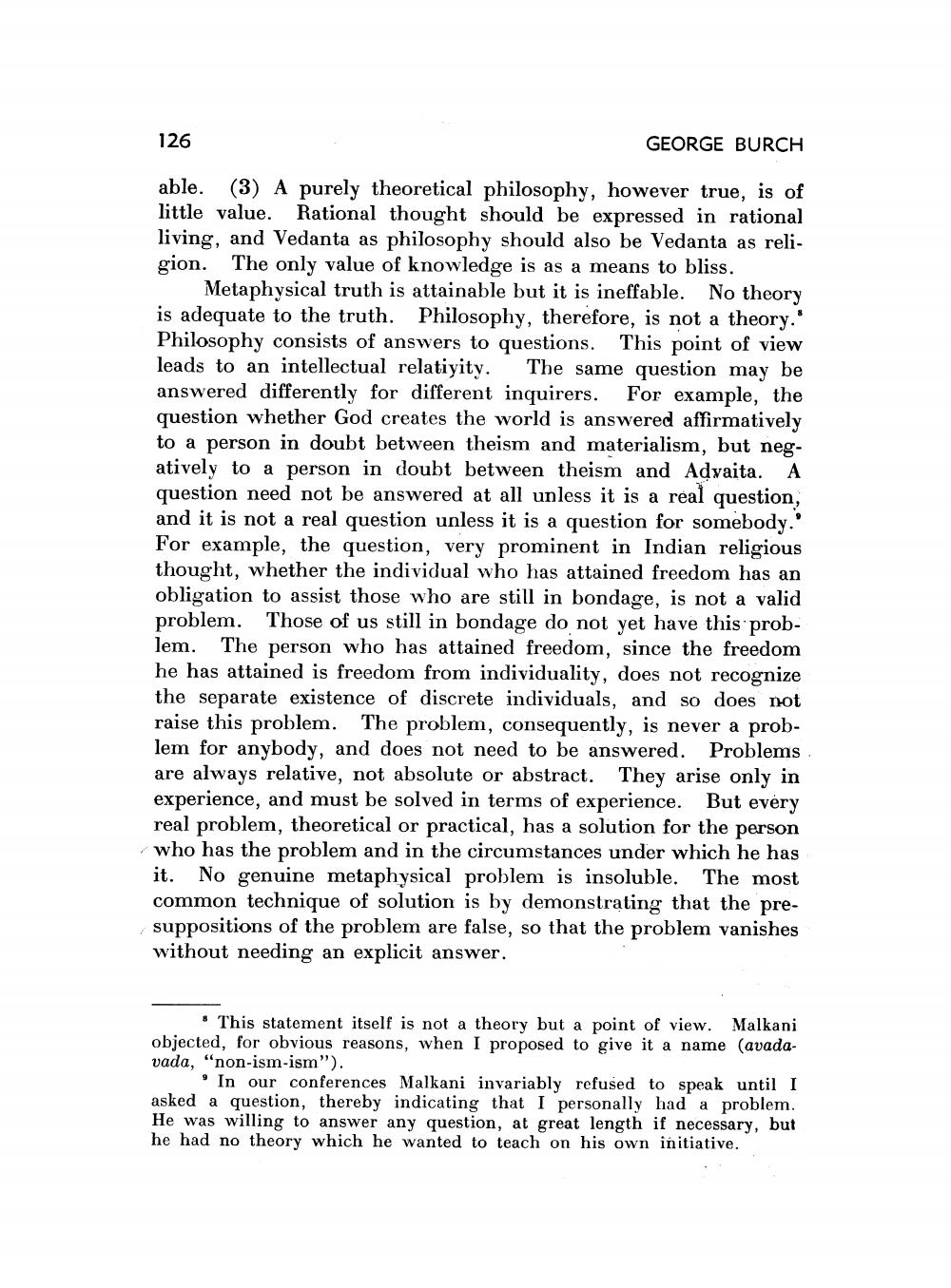Book Title: Contemporary Vedanta Philosophy Continued Author(s): George Burch Publisher: George Burch View full book textPage 5
________________ 126 GEORGE BURCH able. (3) A purely theoretical philosophy, however true, is of little value. Rational thought should be expressed in rational living, and Vedanta as philosophy should also be Vedanta as religion. The only value of knowledge is as a means to bliss. Metaphysical truth is attainable but it is ineffable. No theory is adequate to the truth. Philosophy, therefore, is not a theory.' Philosophy consists of answers to questions. This point of view leads to an intellectual relatiyity. The same question may be answered differently for different inquirers. For example, the question whether God creates the world is answered affirmatively to a person in doubt between theism and materialism, but negatively to a person in doubt between theism and Advaita. A question need not be answered at all unless it is a real question, and it is not a real question unless it is a question for somebody.' For example, the question, very prominent in Indian religious thought, whether the individual who has attained freedom has an obligation to assist those who are still in bondage, is not a valid problem. Those of us still in bondage do not yet have this problem. The person who has attained freedom, since the freedom he has attained is freedom from individuality, does not recognize the separate existence of discrete individuals, and so does not raise this problem. The problem, consequently, is never a problem for anybody, and does not need to be answered. Problems are always relative, not absolute or abstract. They arise only in experience, and must be solved in terms of experience. But every real problem, theoretical or practical, has a solution for the person who has the problem and in the circumstances under which he has it. No genuine metaphysical problem is insoluble. The most common technique of solution is by demonstrating that the presuppositions of the problem are false, so that the problem vanishes without needing an explicit answer. . This statement itself is not a theory but a point of view. Malkani objected, for obvious reasons, when I proposed to give it a name (avadavada, "non-ism-ism"). In our conferences Malkani invariably refused to speak until I asked a question, thereby indicating that I personally had a problem. He was willing to answer any question, at great length if necessary, but he had no theory which he wanted to teach on his own initiative.Page Navigation
1 ... 3 4 5 6 7 8 9 10 11 12 13 14 15 16 17 18 19 20 21 22 23 24 25 26 27 28 29 30 31 32 33 34 35 36
